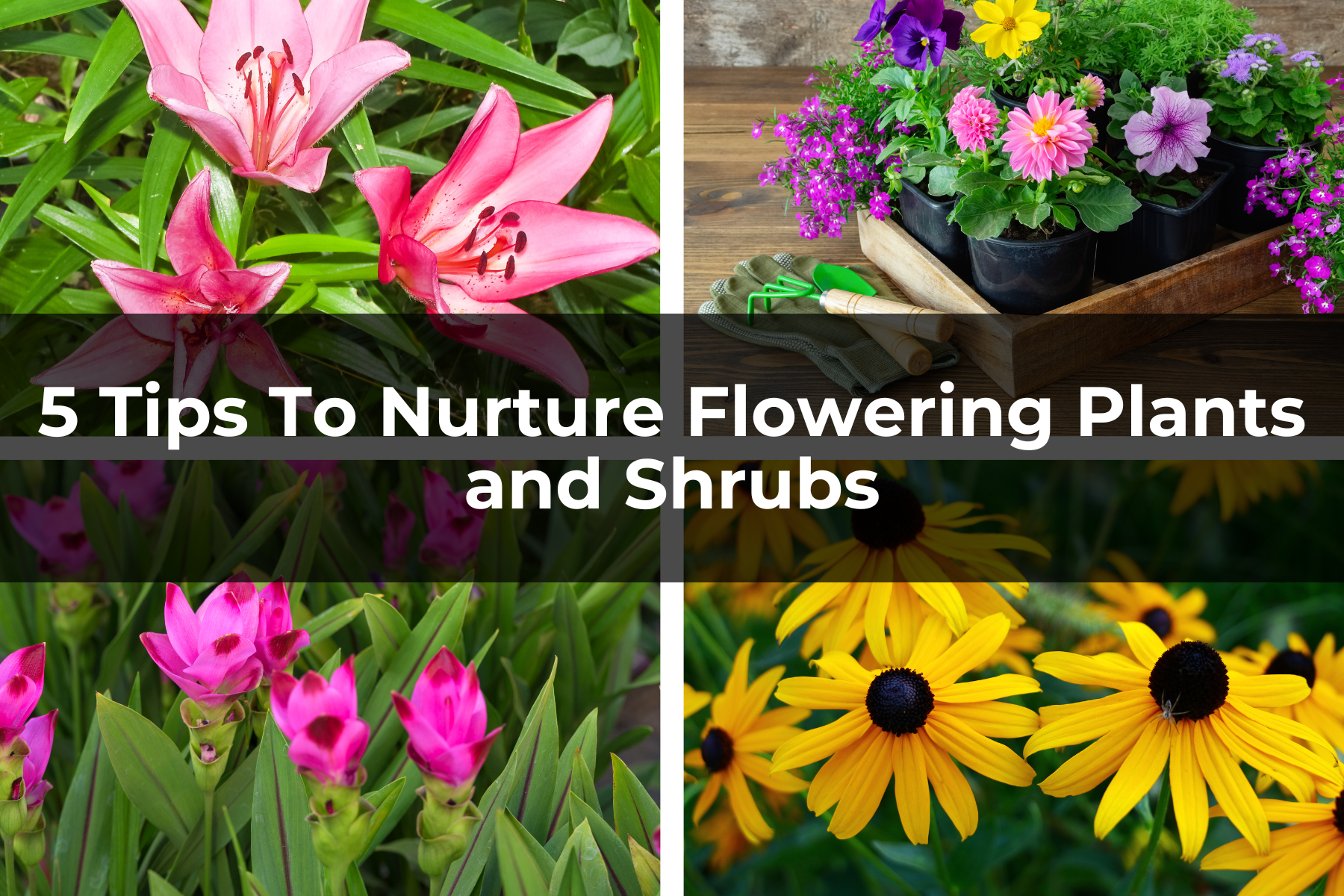Last Updated on October 8, 2022 by Real Men Sow
Everyone loves nature and gardens. When the flowers in your garden start to bloom it makes you happy. The bright colors of the sunflowers, poppies, daisies, and tulips are a perfect explosion of colors. Garden maintenance doesn’t have to be complicated or stressful! It is important that you know how to nurture flowering plants and shrubs to keep them looking beautiful and healthy.
Here are 5 tips that make maintaining a garden easy, even for the newest green thumb.
Water
It is important to research the water requirements of each plant so that you don’t overwater them. However, it is important to ensure that the plants are getting enough water as they will require it for survival. A beautiful garden will be created when people can properly water their plants and not overwater them.
Pests
Gardeners will need to spend lots of time-fighting pests like ants, spiders, moths, and birds. It is impossible to stop every pest from getting into your yard. A homeowner can prevent large rodents from entering their yard by taking a proactive approach and putting up a barrier to keep them out. You should also inspect your plants regularly and look for pests. If a gardener notices any pest activity, they should go to an outdoor gardening center to get the correct spray to tackle this serious problem.
Location
Nurture flowering plants by placing plants in the right places. It is a common mistake that people make. To maximize the growth of a shrub, it is important to understand its location before purchasing. Some flowers need sunlight all day, while others prefer to be shaded. It doesn’t matter what, if the plan is placed in the right place, it will flourish.
Sunlight
You need to make sure that your plants get enough sunlight. Some flowers require a lot of sunlight while others need only a few hours. To provide enough light, you must first understand the lighting requirements of your plants.
To ensure your plants get enough sunlight, you can place your garden away from tall buildings and large trees. This is done to prevent sunlight from blocking your plants. You can put a barrier around your garden to prevent sunlight from reaching your plants for long periods of time.
Fertilizer
Although plants can grow naturally, fertilizer is necessary to make sure that your shrubs are healthy and vigorous. This will give the plant plenty of nutrients, which can make it more resistant to disease and pests. A bag of fertilizer can be purchased for as little as a couple of dollars.
Nurture Flowering Plants by Deadheading
Watch a flower grow faster if it has been stripped of its dead petals. You should not deadhead flowers once the petals have begun to wither. A homeowner should remove the petals from their yard at least once a week. This will help to bring out the beauty of the garden and also encourage the plants to thrive.
Nurture Flowering Plants by Removing Weeds From Your Flower Garden
Weeds compete for resources with useful plants and can harbor pests and diseases. In order to get the best from your flowers, you need to remove any weeds that grow in your garden.
If you are growing flowers in a smaller garden or using pots and vases, you can control weeds by just uprooting them. For a larger garden, you need to use garden tools like a hoe and pick, and you can weed after every week.
Protect Your Flower Plants from Animals
Certain animals, such as herbivores can eat the leaves of flower gardens and cause damage. Garden plants can also be destroyed by other animals, such as dogs and cats. Installing a barrier is the best way to protect your garden. A wire fence is a good option to protect your garden from animals. It also keeps your garden visible.
Nurture Flowering Plants Staking Your Plants
To nurture flowering plants, one should support plant stems, and stakes are used. This involves putting a stake or rod into the ground and attaching a stem to it. This is used for plants that have weak stems, or plants that must grow in a particular direction.
Bamboo sticks, or any other light wood, can be used to stake weak-stemmed plants in your garden. The sticks should be fixed to the ground. Once the stems are attached, tie them using threads, garden tape, or strips of cloth.


